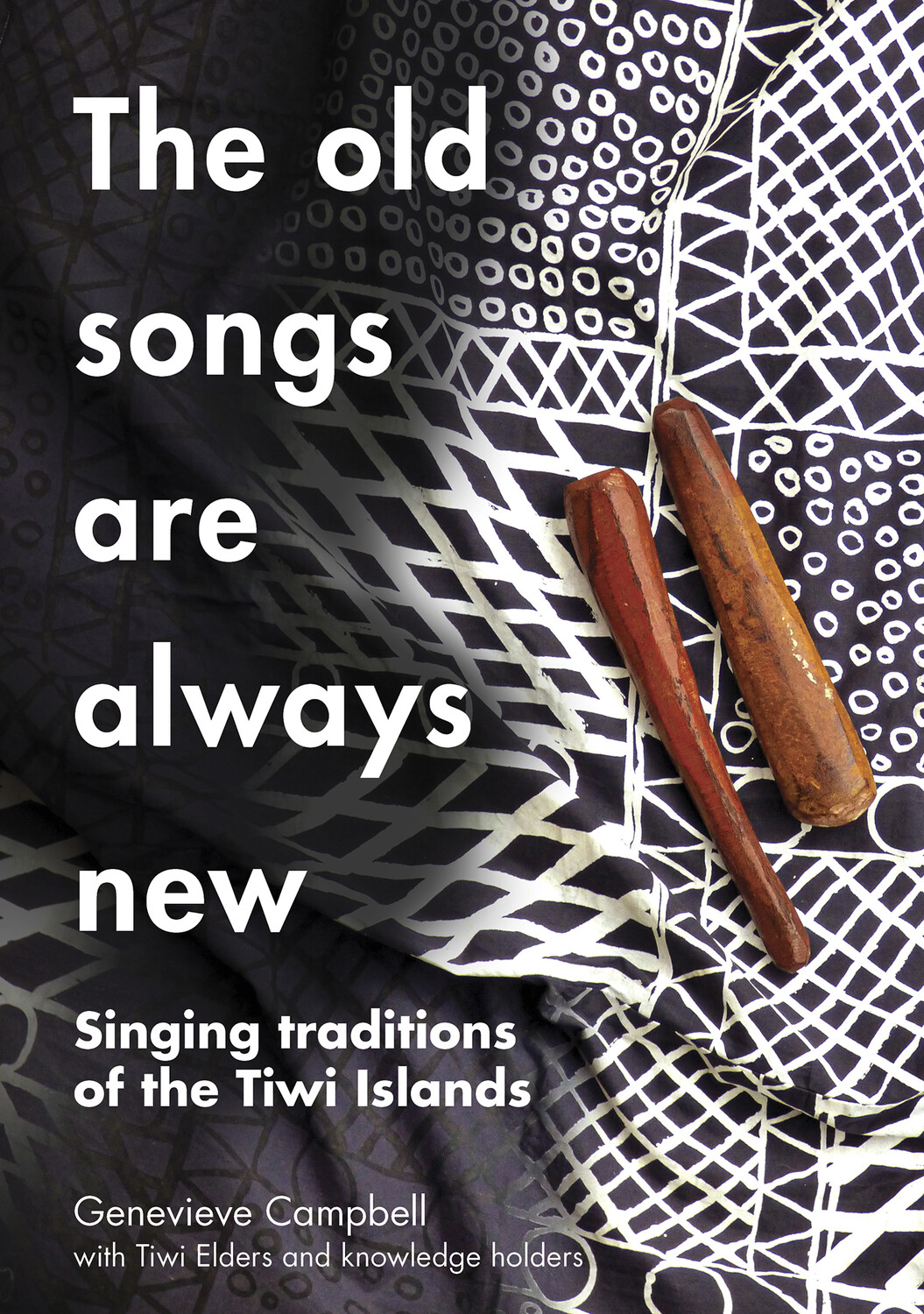
It’s really great. It’s like they’re all here. I hear all of these voices and I sing with them, you know? — Yikliya Eustace Tipiloura, senior songman and Elder
Perhaps the most defining feature of Tiwi song is the importance placed on the creative innovation of the individual singer/composer. Tiwi songs are fundamentally new, unique and occasion specific, and yet sit within a continuum of an oral artistic tradition. Performed in ceremony, at public events, for art and for fun, songs form the core of the Tiwi knowledge system and historical archive. Held by song custodians and taught through sung and danced ritual, generations of embodied practice are still being created and accumulated as people continue to sing.
In 2009 Genevieve Campbell and eleven Tiwi colleagues travelled to Canberra to reclaim over 1300 recordings of Tiwi songs, made between 1912 and 1981, that are held in the archives at the Australian Institute of Aboriginal and Torres Strait Islander Studies (AIATSIS). The Old Songs are Always New explores the return home of these recordings to the Tiwi Islands and describes the musical and vocal characteristics, performance context and cultural function of the twelve Tiwi song types, giving an overview of the linguistic and poetic devices used by Tiwi composers.
For the past 16 years Campbell has been working closely with Tiwi song custodians, studying contemporary Tiwi song culture in the context of the maintenance of traditions and the development of new music forms. Their musical collaboration has resulted in public performances, community projects and recordings featuring current senior singers and the voices of the repatriated recordings. For this publication, Elders have enabled the transcription of many song texts and melodies for the first time, shedding light on how generations of Tiwi singers have connected the past with the present in a continuum of knowledge transmission and arts practice.
There are 27 Tiwi recordings available to be listened to here: https://open.sydneyuniversitypress.com.au/old-songs.html
Genevieve Campbell has worked for 30 years as a professional French Horn player and since 2007 has been involved with senior Tiwi singers in musical collaboration which has resulted in numerous performances, recordings and study centred around the repatriation to the Tiwi community of ethnographic field recordings of Tiwi ceremony and song. Her recent Sydney University Fellowship at the Sydney Conservatorium of Music and the Sydney Environment Institute focused on the role of Tiwi song and embodied knowledge in cultural maintenance, artistic creativity and community health. She is currently a Research Affiliate at the Sydney Conservatorium of Music.
Acknowledgements
Contents
List of figures
List of music transcriptions and notes
List of song texts
List of audio examples
List of other recorded material in the AIATSIS archive
List of plates
Map
Preface
Notes on orthography
List of Tiwi Elders, singers, culture and knowledge holders, and research consultants
Glossary of terms
Prologue
Chapter 1: An introduction to the Islands
Chapter 2: The archived recordings
Chapter 3: Singing identity
Chapter 4: Kulama
Chapter 5: The Tiwi Language(s)
Plates
Chapter 6: The classical Tiwi music
Chapter 7: Emerging musical genres
Epilogue
References
Index
“For everything that has happened on the country of Indigenous people, there is always the version told or sung that is told by Indigenous people themselves – full of humour and pathos, sadness and grief – that never makes it into the ‘objective’ accounts of Western history. ... Enables non-Indigenous readers to come to know how any one event can have another story, another way of it being interpreted.”
John J. Bradley
ABR
Size: 254 × 178 × 12 mm
362 pages
1 bibliography, 1 map, and 34 colour plates
Copyright: © 2023
ISBN: 9781743328750
Publication: 01 Jul 2023
Series: Indigenous Music, Language and Performing Arts
